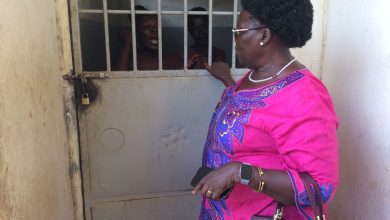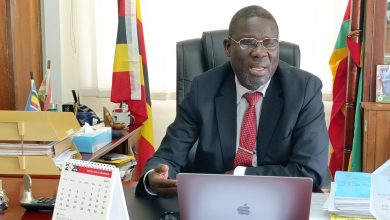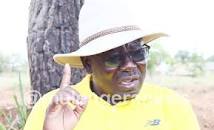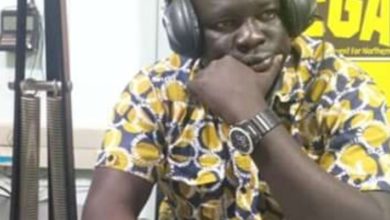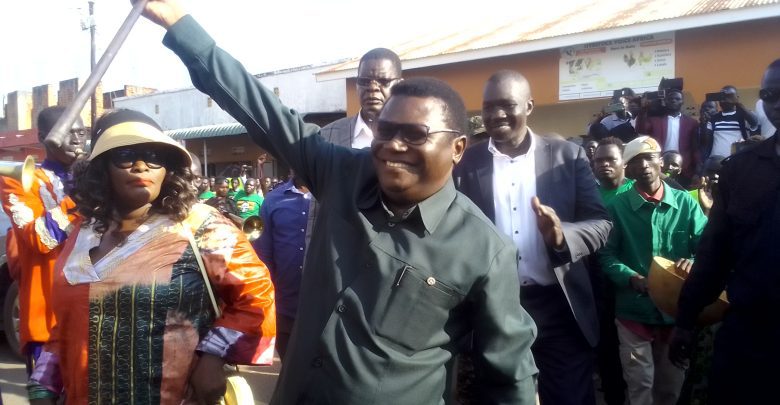
Forty years of Mao stand as one of the few figures whose political adulthood has unfolded entirely under Museveni’s long rule and whose voice consistently pressed the same demand. Uganda must return to a politics where the rule of law supersedes the rule of the gun.
Whether interpreted as endurance, compromise, or a search for a new political path, Mao’s story is ultimately about a man navigating the harsh realities of power, standing at a crossroad where temptation, principle meets pressure, and conviction meets, and where every choice echoes far beyond the mountain top.
GULU CITY- WED. NOVEMBER 26, 2025.
By Okumu Livingstone Langol, Our Correspondent
Uganda’s political thinker argued that the debounced back to stand for Gulu City, Pece-Laroo City, east Division can be similarly summarized as falling from atop of the mountain to top of Anthill, as dozens of Acholi Legislators followed suit to join President Museveni National Resistance Movement.
On Tuesday, November 25, 2025, Mao’s launched his first campaign drive in Gulu City, first by unfurling his Democratic Party office on Commercial Road in Pece-Laroo Gulu City East Division with a few armpit DP loyalist including onlooker who turned up to witnessed the most Acholi top leading demonocracy advocates for decades
For nearly four decades, Norbert Mao has walked a political path marked by defiance, conviction, and an unyielding belief that Uganda deserves a fairer, more accountable state. His story begins in the turbulent years of the 1980s and early 1990s, when the promise of a new dawn under Yoweri Museveni stirred hope across the country. Mao, then a young student activist, quickly emerged as one of the most articulate voices insisting that Uganda’s rebirth must be grounded in the rule of law, not the rule of powerful men.
Through University politics, parliamentary debates, and district leadership, Mao carried the same message: democracy must not be postponed, institutions must not be captured, and power must remain accountable to citizens. While others adjusted, compromised, or retreated under the weight of state power. Mao built a reputation as a political actor who preferred truth to convenience, confrontation to silence the status quo.
As the years passed, Uganda’s political terrain hardened, multiparty politics returned on paper, but the structure of the state continued to bend toward the Centre. Elections became battlegrounds, not contests of ideas. Veterans of the struggle fell silent, others found comfort in patronage, and some openly surrendered the idealism that once defined them.
But Mao’s voice, whether in opposition benches, public rallies, or heated Television debates, remained a consistent thorn in the side of impunity. He spoke a blend of humour, sharp intellect, and fearless critique challenging constitutional amendments, denouncing the militarization of politics, and demanding justice for communities that felt abandoned by the state.
In Acholi, where the scars of conflict ran deep, Mao’s leadership carried an emotional weight. He championed reconciliation, land protection, and dignity for war survivors. He confronted both government narratives and rebel atrocities, insisting on truth even when it drew anger from all sides.
Across the years, Mao’s political journey became a testament to endurance. He fought court battles, faced arrests, endured smear campaigns, and witnessed Uganda’s democratic space shrink around him. Yet he remained stubbornly committed to dialogue as a tool for national transformation, even when critics accused him of negotiating with a regime he had long opposed.
In Mao’s own framing, politics is not a battlefield for personal survival, but a long, often lonely march toward a Uganda where leaders serve under the restraint of Law. Whether as a Member of Parliament, Gulu District Chairman, or Democratic Party Presidential General. Or Minister of Justice and Constitutional Affairs, he continued to emphasize that the country’s deepest wound could be healed only through constitutionalism, justice, and the courage to question power.
Forty years on, Mao stands as one of the few figures whose political adulthood has unfolded entirely under Museveni’s long rule, and whose voice has consistently pressed the same demand. Uganda must return to a politics where the rule of law supersedes the rule of the gun.
Norbert Mao, narrative using Biblical allegory
Norbert Mao’s political journey could be compared with the forty days of Jesus fasting in the wilderness and subsequent temptation by Satan. This symbolizes forty years of testing, conviction, hunger for justice, and moments of deep solitude. Mao’s early years were shaped by clarity of purpose and an unwavering belief in the power of truth.
As guild president at Makerere University, he stood boldly against injustice, energizing a generation of students who believed that Uganda could be governed by law, not fear. His decade in parliament from 1996 to 2006 strengthened that reputation; he confronted excesses of power, challenged policies he believed undermined democracy, and spoke with a confidence that made him one of the sharpest critics of the ruling establishment.
Later, as Gulu District Chairman, he navigated the difficult terrain of war recovery, displacement, and land conflict, moments that demanded both compassion and courage. Today, and when he rose to national prominence as leader of the Democratic Party DP, serving several terms in office, he framed politics as a calling; a duty to protect the vulnerable, uphold constitutionalism, and resist the creeping erosion of democratic space.
Through these decades, Mao’s public life felt like an extended fast in the wilderness: a struggle for moral clarity amid political storms, a test of endurance in a country where power rarely shifts and speaking truth to authority carries a high cost. But every leader has a moment of temptation because of lust for riches and comfort.
When Mao entered into negotiations and later joined the government as Minister of Justice and Constitutional Affairs, the nation reacted with shock, confusion, and debate. To some, it appeared as though the long-time critic had finally succumbed to Satan temptations and agreed to jump of the mountain top after being promised worldly treasures and position in government. In the biblical metaphor, this is the moment when Satan asked Jesus to bow before him for the sake of worldly riches, comfort and power. In Uganda’s political narrative, it became a moment when principles, survival, strategy, and compromise collided with the interest of the people.
For his critics, it looked like surrender, like a symbolic bowing before the forces he had long opposed unlike Jesus who rejected all forms of temptation. And for his supporters, it left them wandering and questioning; was this a strategic move, or the breaking point of a long political fast?
Whether interpreted as endurance, compromise, or a new political path, Mao’s story is ultimately about a man navigating the harsh realities of power, and standing at the crossroads where conviction meets temptation, where greed for worldly treasure is standing at the crossroads, where conviction meets temptation, where principle meets pressure, and where every choice echoes far beyond the mountain top.

